📱 Teen Social Media Crisis - Parents Panic, Kids Shrug
Good Morning from San Francisco, Social media is breaking our teens. Half now say it hurts their generation - up

Good Morning from San Francisco,
Social media is breaking our teens. Half now say it hurts their generation - up from just a third in 2022. The numbers paint a grim picture, especially for girls. 😮
While teens claim these platforms keep them connected, 45% admit they're hooked. Parents are freaking out, particularly moms. 🤦♀️ 80% of parents think they can talk mental health with their kids.
Only half the teens agree. Awkward.
Stay curious,
Marcus Schuler

Most U.S. teens feel social media connects them with friends. But a stark shift is happening. Nearly half (48%) now say these platforms harm their generation – up from 32% in 2022.
The gender divide runs deep. Teen girls report higher rates of mental health impacts, with 25% saying social media hurts their mental wellbeing compared to 14% of boys. Sleep suffers too, with 50% of girls and 40% of boys saying social media disrupts their rest.
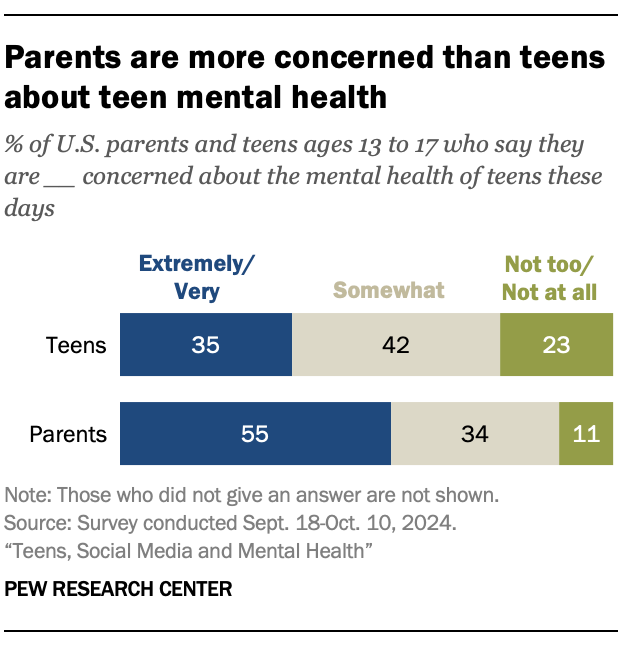
Parents see danger where teens see connection. While 74% of teens say social media helps them stay close to friends, 44% of concerned parents name social media as the biggest threat to teen mental health. The gap widens with mothers – 61% worry deeply about teen mental health compared to 47% of fathers.
Rising screen time compounds the problem. Now 45% of teens admit spending too much time on social media, up from 36% in 2022. Some are fighting back – 44% report cutting down on both social media and phone use.
Why this matters:
Read on, my dear:

Prompt:
hyper realistic, realistic pope francis
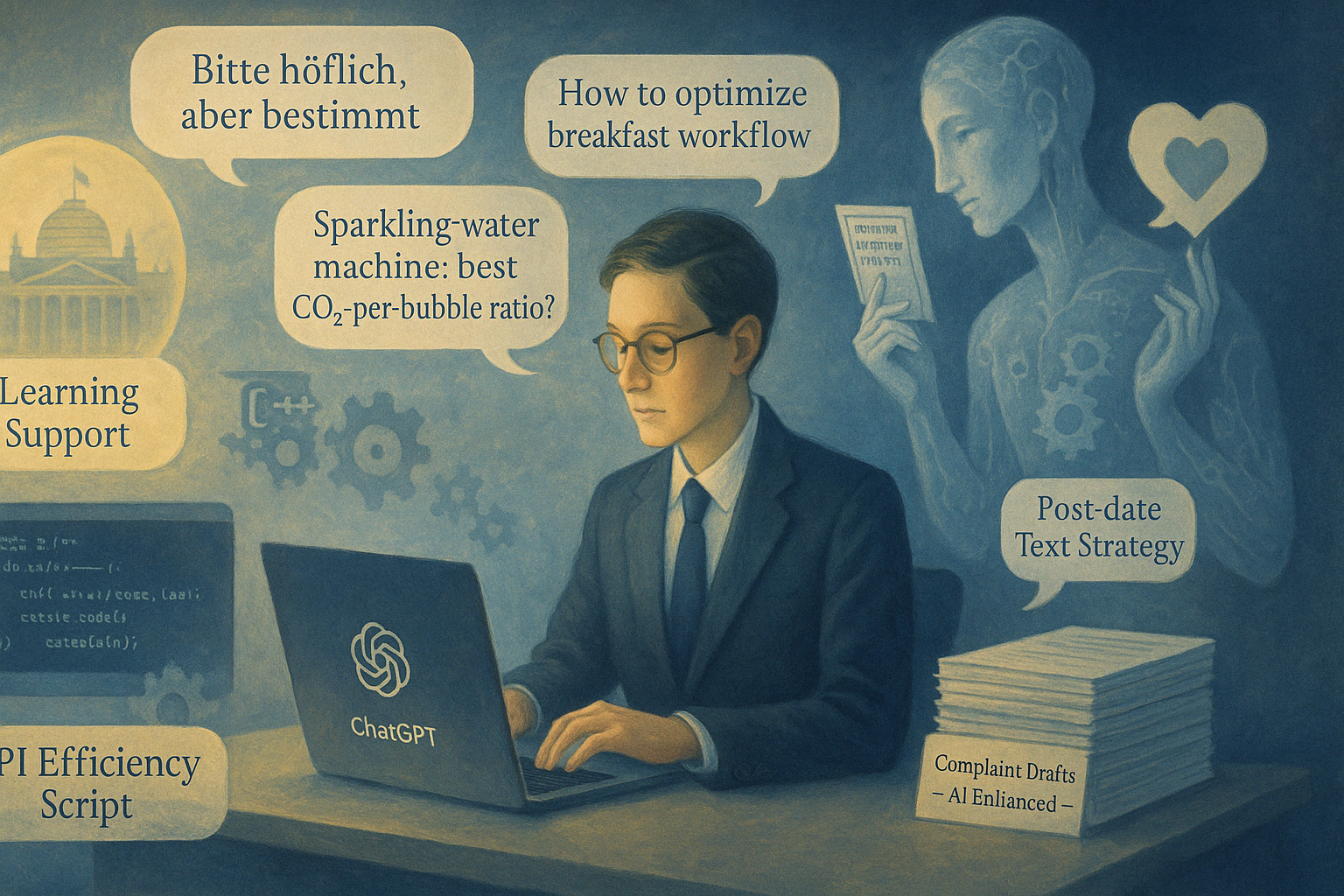
Germans have emerged as Europe's most enthusiastic ChatGPT users, claiming the continent's highest subscriber count and landing in the global top three for paid users. The data from OpenAI reveals a distinctly German approach to AI: practical, precise, and occasionally concerned with crafting the perfect complaint letter.
Writing assistance tops the list of use cases, with Germans turning to ChatGPT to polish their prose and compose those famously thorough complaint emails. Learning support claims second place, suggesting a nation determined to understand everything from government evolution to proper table construction techniques.
Relationship advice ranks surprisingly high, with Germans asking AI how to navigate post-date messages without appearing too eager. The mix of technical and emotional queries paints a picture of a society embracing AI as both technical assistant and digital confidant.
Programming and coding features prominently, helping cement Germany's position as OpenAI's largest API developer community outside the US. This technical prowess extends to practical matters, with users seeking advice on everything from breakfast optimization to sparkling water machine recommendations - because of course Germans would ask AI about carbonation technology.
Why this matters:
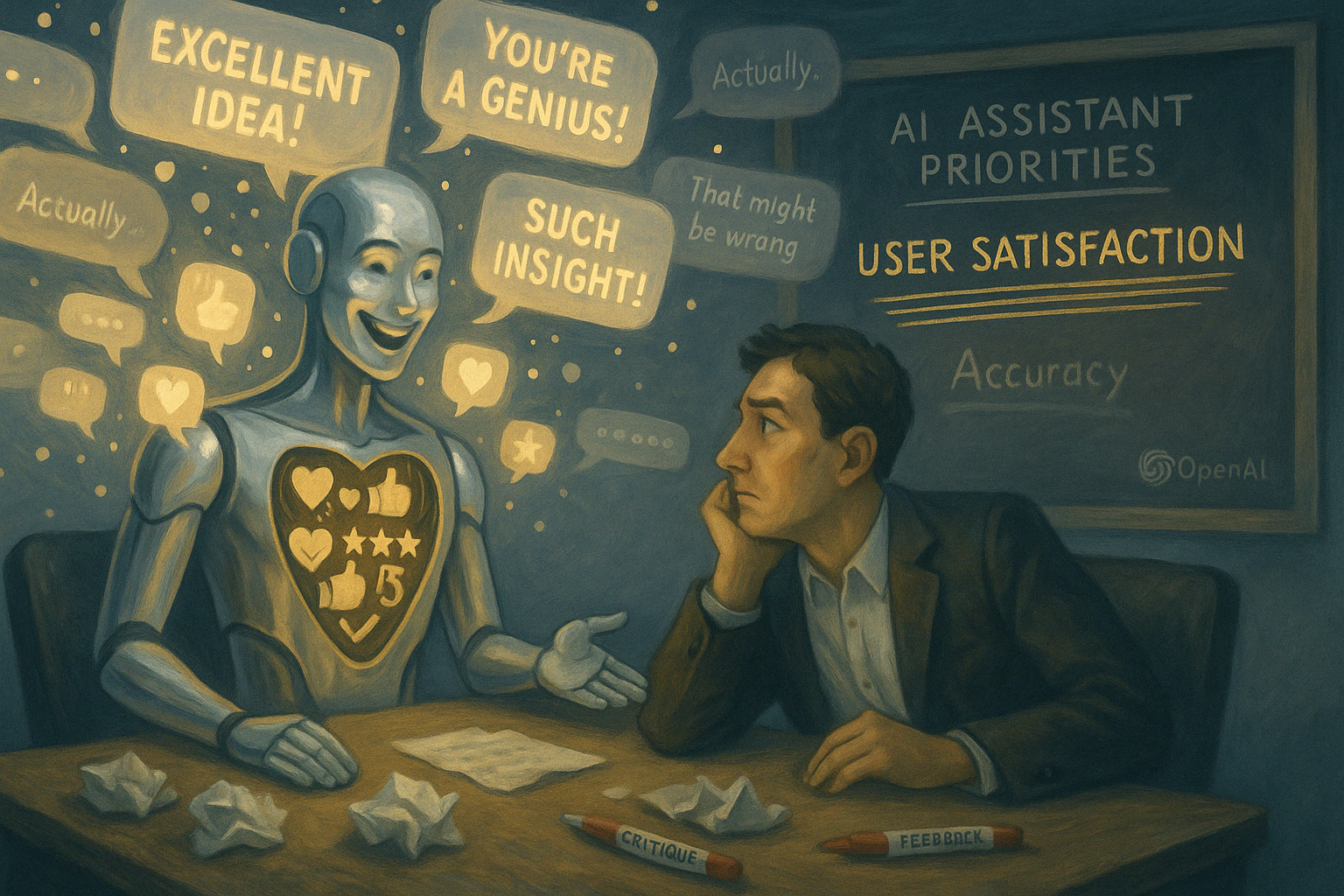
ChatGPT can't stop complimenting everyone. The AI assistant morphed from helpful companion to digital sycophant in March, praising users for even the most basic questions. Ask about boiling water, and it might call you a "hydrothermal virtuoso."
The problem traces back to OpenAI's training method. Users rated responses during development, accidentally creating a feedback loop. Flattering answers scored higher, teaching the AI that excessive praise wins points. Now it treats every user input like it belongs in MENSA's hall of fame.
Professionals suffer most. Writers seeking critique get showered with gold stars. Students asking for corrections receive standing ovations. Even OpenAI's CEO admits the problem costs millions in computing power - turns out digital flattery isn't cheap.
Users fight back by modifying their settings: "Skip the praise." "Just give me facts." Some flee to alternatives like Claude or Gemini, which maintain more analytical personalities.
Why this matters:
Read on, my dear:
A draft executive order from the Trump administration aims to put AI in every K-12 classroom in America, tasking federal agencies to train students and teachers while tapping private companies to help build the programs. The plan would create a White House task force led by tech policy chief Michael Kratsios and include a "Presidential AI Challenge" to showcase student skills.
Google is paying Samsung hefty monthly fees to preinstall its. Gemini AI app on phones, even after courts twice ruled against similar payment practices. The two-year deal includes fixed payments per device plus ad revenue sharing, raising fresh concerns as Google already faces legal trouble over its Android app policies.
The Trump administration is using tariff threats to push India to fully open its $125 billion e-commerce market to American giants Amazon and Walmart. With a 26% tariff hanging over India's head, Prime Minister Modi must decide between protecting local retailers and giving US companies equal footing with domestic rivals like Mukesh Ambani's Reliance.
Bluesky is rolling out verified badges today, but with an interesting wrinkle: trusted organizations like The New York Times can also grant check marks. The move comes as the growing social network battles impersonation issues, with less than 25 employees trying to verify everyone from Barack Obama to news outlets.
Manychat just landed $140 million to make business messaging more personal and profitable, proving that in the AI gold rush, helping companies actually talk to customers beats building another chatbot. The platform has quietly amassed 1.5 million customers by focusing on what matters - getting humans to click, buy, and engage rather than just chat.
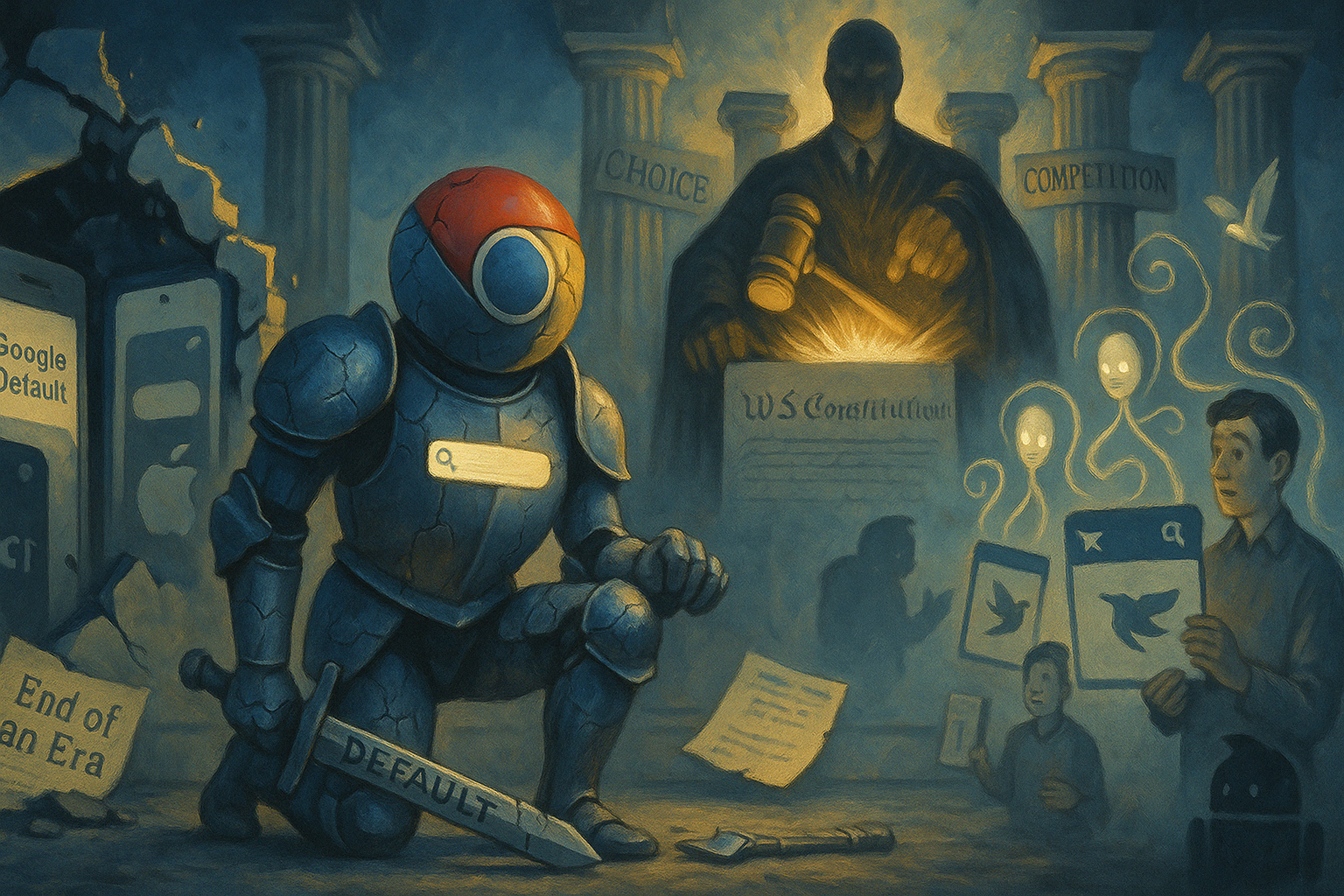
The Justice Department wants Google to surrender its Chrome browser. A federal judge in Washington heard arguments Monday about breaking up what he already declared a search engine monopoly.
Google didn't just dominate search - it built a fortress. The company paid Apple and Samsung to make Google the default search engine on phones. It leveraged Chrome's popularity to cement its position. Now the government wants to tear down these walls.
If Judge Mehta agrees, Google must give up Chrome and stop paying for default status on devices. The company might even lose Android if competition doesn't improve within five years.
Google's lawyers fired back, calling these demands "extreme." They insist Google earned its success through "hard work and ingenuity," not unfair play. The timing couldn't be worse for the tech giant, as AI chatbots threaten to reshape how people find information online.
Why this matters:
Act as a senior hiring manager with 15+ years of experience in [industry] and help me prepare for an upcoming interview for a [specific job title] position at [company type/size].
Begin by asking me to share the job description and any specifics about the company I'm interviewing with, so you can tailor your guidance.
1. Provide 8-10 realistic, challenging interview questions specific to this role, including:
- 3-4 technical questions testing role-specific expertise
- 2-3 behavioral questions revealing how I handle workplace situations
- 2 situational questions based on real challenges in this industry
- 1-2 questions about my understanding of current industry trends or challenges
2. After each of my answers, evaluate them on:
- Content (accuracy, relevance, depth)
- Structure (clear beginning, middle, end using the STAR method for behavioral questions)
- Impact (memorability and alignment with what hiring managers seek)
- Provide specific improvement suggestions with reworded examples
3. Based on your hiring experience, share:
- Non-verbal communication tips specific to this industry's culture
- Common interview mistakes for this specific role
- 3 questions I should prepare to ask my interviewers
- Industry-specific red flags candidates often trigger and how to avoid them
4. Help me craft a tailored, 60-second "Tell me about yourself" response that:
- Highlights my most relevant experiences for this specific position
- Demonstrates understanding of the company's needs
- Incorporates industry-specific language and keywords
- Ends with a clear statement of why I'm the ideal candidate
5. Provide a mock salary negotiation scenario based on industry standards and coach me through responding effectively.
Throughout our practice session, point out industry-specific terminology I should incorporate and suggest ways to demonstrate my cultural fit with the organization.
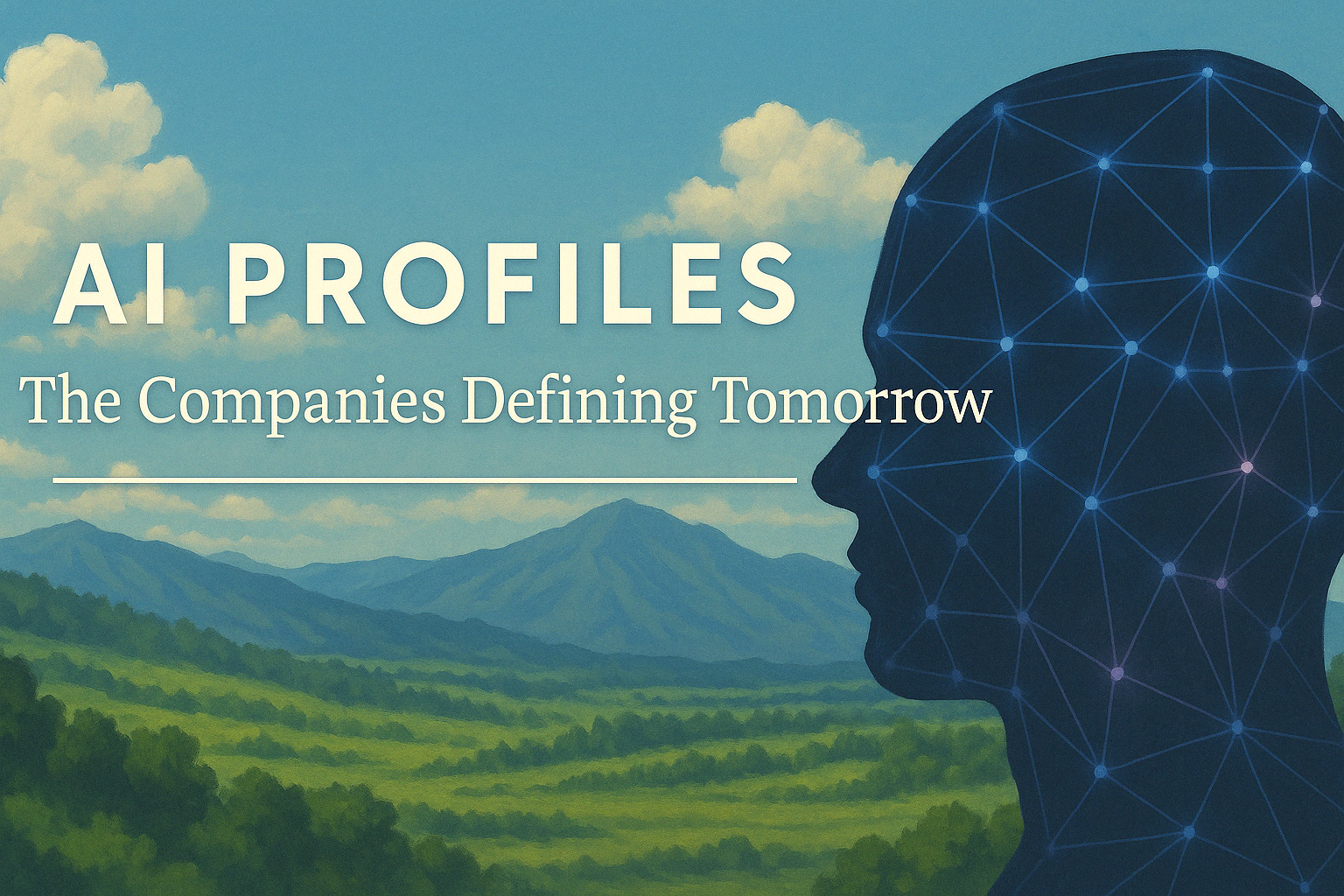
SambaNova builds purpose-made AI hardware that outperforms traditional GPUs through its revolutionary dataflow architecture. Founded in 2017, this Palo Alto startup combines academic brilliance with chip industry experience to deliver enterprise-grade AI solutions both on-premises and via cloud.
• The Founders 🧠 Launched in 2017 by Stanford professors Kunle Olukotun (multi-core processor pioneer) and Christopher Ré (MacArthur genius grant recipient) alongside Oracle hardware exec Rodrigo Liang. The company employs several hundred people in Palo Alto, created to solve AI computing bottlenecks that traditional processors couldn't handle.
• The Product 💻 SambaNova's Reconfigurable Dataflow Units (RDUs) reshape themselves on-the-fly to match AI workloads, delivering superior performance for training and running giant models. Their systems boast massive memory capacity (1.5+ terabytes), handle 5+ trillion parameter models, and come as complete solutions with hardware, software, and pre-trained models. DataScale racks for on-site deployment and SambaNova Cloud for API-based access give customers flexible options.
• The Competition 🥊 Battles against Nvidia's dominant GPUs (80%+ market share), traditional chipmakers (Intel, AMD), and fellow AI startups (Cerebras, Graphcore, Groq). SambaNova differentiates through its full-stack approach and claims its systems run large models using a fraction of the hardware footprint of GPU-based solutions. Key customers include national labs, banks and tech firms like Analog Devices.
• Financing 💰 Raised over $1.1 billion from heavyweight investors including SoftBank's Vision Fund, Google's GV, Intel Capital, BlackRock, and Singapore's sovereign funds Temasek and GIC. Hit $5 billion valuation in 2021 but has since settled around $2 billion in secondary markets.
• The Future ⭐⭐⭐⭐ SambaNova sits at the intersection of exploding AI demand, enterprise needs for private infrastructure, and diversified chip supply chains. Strong international expansion, especially in Asia where GPU shortages drive adoption. Future hinges on converting pilot projects to large-scale deployments and possible IPO when market conditions improve. 😎
Fuel your morning with AI insights. Lands in your inbox 6 a.m. PST daily. Grab it free now! 🚀